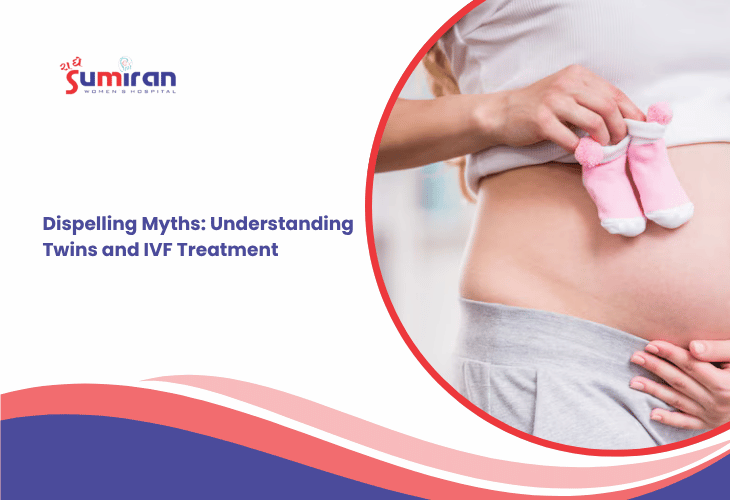IVF twin pregnancy is shrouded in misunderstanding and myth. Couples seeking fertility treatment often feel nervous after being told of twins as a “guarantee with IVF.” The reality is more complicated, though. The key lies in realising the biology behind embryo transfer and how improvements have changed the way we do IVF today.
In this blog, the facts are uncovered, myth-busted, and explained in terms of why does IVF cause twins and how to minimise the risk.
Breaking the Myth: IVF Always Results in Twins
One of the most widespread misconceptions is that IVF twins are solely the result of treatment. They are not. True, it is accurate that the twin rate is marginally greater with IVF than with ordinary conception, but it is far from guaranteed. The aim of most contemporary fertility centres is for one healthy single birth, and certainly not multiple births.
Previously, clinics used to transfer more than one embryo with the hope of maximizing success rates. This resulted in more twin or even triplet pregnancies. Today, however, the focus has changed. With advancements in embryo selection processes and improved protocols in the laboratory, clinics are more concerned about the health and well-being of both mother and child.
Also Read: IVF Success Rates: What You Need to Know
Why IVF May Lead to Twins in Some Situations?
The key lies in embryo transfer decisions. With the transfer of more than one embryo into the uterus, there is an increased chance for more than one implanting. That is one factor that causes IVF twin pregnancy. So, while the treatment itself doesn’t directly result in twins, choosing more than one embryo for transfer does.
This is why one tends to ask, does IVF cause twins? The answer is: not directly, but the treatment planning is key.
How to Prevent Twins in IVF?
The most effective approach is single embryo transfer, or SET or elective single embryo transfer. or eSET. This approach lowers the risk of having more than one baby, while nonetheless having good success rates. So, if you’re wondering how to avoid twins in IVF, SET is the solution for you.
The notion that IVF twins are always the aim or outcome is outdated. Modern IVF treatment emphasises security, control, and tailored care. If you’re seeking treatment, talk with your specialist regarding your choices and the most effective means of minimising risks. After all, educated decisions create healthier results.
Conclusion
While IVF has historically been associated with twin pregnancies, today’s practices have evolved significantly. The decision to transfer one or more embryos plays a critical role in the likelihood of a multiple pregnancy. Thanks to advancements in technology and a stronger focus on maternal and fetal health, most fertility specialists now recommend elective single embryo transfer (eSET) to reduce risks and aim for one healthy baby at a time.
At Sumiran Hospital, we prioritise patient safety, evidence-based fertility care, and personalised treatment plans. If you’re considering IVF, our expert team will guide you through every step, helping you make informed choices that align with your health and family goals.
